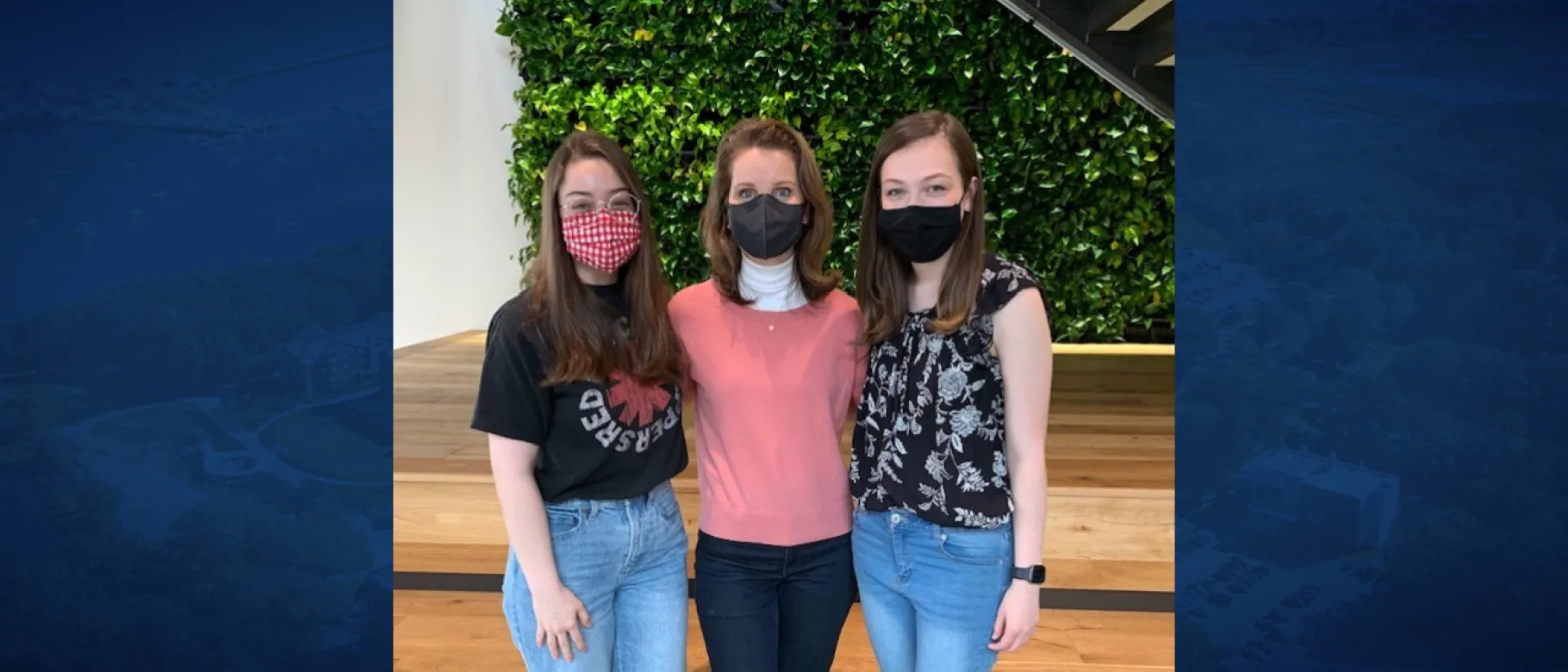Psychology, neuroscience students present at educational research conference

Jennifer Stiegler-Balfour, Ph.D., associate professor and assistant academic director in the School of Social and Behavioral Sciences, and undergraduate research assistants Nicole Martin (Psychology, ’21) and Aubrey Sahouria (Neuroscience, ’22) recently presented their research on reading comprehension and the use of e-textbooks at the virtual American Educational Research Association (AERA) conference on April 8.
A national research society, the AERA is among the most highly regarded venues for presenting research related to educational sciences. The organization’s mission is to advance knowledge about education, encourage scholarly inquiry related to education, and promote the use of research to improve education and serve the public good.
The trio’s research presentation, “Could adopting e-textbooks widen the education gap? The effects of reading skill on comprehending e-texts,” investigated whether widespread adoption of e-textbooks may widen the educational gap between readers of different skill levels. Specifically, the three investigated if individuals understand and learn information differently from e-readers versus paper books depending on if they are higher- or lower-skilled readers.
The study found that, while readers of all skill levels are able to utilize e-readers for leisurely reading, reading on e-readers may be less efficient than reading on paper, because it either takes more time to read, or comprehension may suffer. These results hold particular importance for education as they provide evidence that digital texts may be hurting students, particularly those who are less-skilled readers.
“I was excited to be sharing our research with the educational community,” said Martin. “As use of digital texts increases in schools and other learning environments, our studies are becoming increasingly more important in helping us to understand how this switch is impacting our students cognitively.”
Sahouria, for whom this was a first-time round table experience, said participating in the conference was beneficial as an undergraduate student.
“Sitting down with a designated handful of researchers and taking some deeper dives into their projects was a tremendous experience,” Sahouria said. “It was amazing to be able to participate in something this exciting as an undergraduate.”
The research team also thanked the School of Social and Behavioral Sciences in the College of Arts and Sciences for funding their attendance at the conference.
Learn more about the Reading Comprehension and Cognition Lab at: https://sites.une.edu/rcclab/